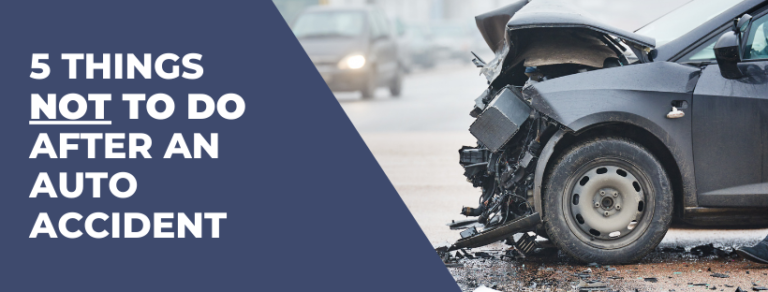Updated Septemeber 2025
Loss of enjoyment of life is often awarded in personal injury lawsuits to compensate accident victims for their inability to participate in activities they previously enjoyed. This claim recognizes the losses beyond medical expenses, rehabilitation costs, and lost wages.
Similar to pain and suffering and mental anguish, loss of enjoyment is not a tangible damage award. Therefore, it can be harder to quantify as it doesn’t have a monetary equivalent. By the end of this article, you’ll have a better understanding of how negligence is proven, common injuries, and how loss of enjoyment of life compensation is calculated.
Can You Sue Someone for Loss of Enjoyment of Life?
To successfully sue for loss of enjoyment of life, you must prove the defendant’s actions directly caused your injury and subsequent loss of enjoyment of life due to their negligence.
This typically involves proving the following elements:
- Duty of Care: The defendant was legally obliged to act with a certain level of care towards you.
- Breach of Duty: The defendant breached this duty through negligence or intentional misconduct.
- Causation: The breach of duty directly caused your injury.
- Damages: You suffered quantifiable damages as a result of the injury.
Evidence that can prove negligence when victims sue for loss of enjoyment of life can include:
- Witness statements
- Medical records
- Police reports
- Photographs and videos
- Accident reconstructions.
If you’ve suffered loss of enjoyment of life after an injury that wasn’t your fault, our personal injury attorneys in Greenville, South Carolina can gather evidence to build a persuasive case on your behalf.
How Is Loss of Enjoyment of Life Proven?
Proving the loss of enjoyment of life after an accident is not as clear-cut as showing medical bills or demonstrating lost wages. Nevertheless, with strategic planning, effective legal representation, and a clear description of your life before and after the accident, you can successfully demonstrate this when you sue for loss of enjoyment of life.
Evidence claimants can use to prove how the injury has diminished their quality of life include:
- Evidence of Lifestyle Changes: Proving the loss of enjoyment of life starts with showing the quality and enjoyment of your life prior to the injury. Photos, videos, and testimonies from friends and family can provide insight into who you were before the accident.
- Medical Records and Expert Testimony: Medical records detailing the severity of your injuries and professional testimony from medical experts can be used to explain how the injuries limit your physical abilities.
- Personal Testimony: Whether you were an active parent who can’t take care of your children as you used to or an avid hiker who can no longer trek long distances, your personal account about how your injuries have impacted your day-to-day life can support your efforts to sue for loss of enjoyment of life.
- Ongoing Struggles: The need for assistive devices, an inability to perform specific tasks independently, or ongoing medical treatment can prove the daily challenges victims face due to their injuries.
- Psychological Evaluation: If your quality of life has been affected psychologically, a professional cognitive assessment can provide evidence of this.
For those injured due to a devastating car, truck, motorcycle, worksite, or construction site accident, our Greenville personal injury attorneys provide premium legal representation when victims sue for loss of enjoyment of life. Our accident lawyers at the Clardy Law Firm prepare evidence to support claimants seeking to recover the damages to which they are entitled.
Injuries That Can Contribute to Loss of Enjoyment of Life

Various injuries can cause the loss of enjoyment of life. Injuries like a sprained or fractured ankle may cause the victim to miss a week from work and cause only a temporary change in life quality. However, an injury that caused the victim to have a spinal cord injury that led to muscle weakness and spasticity would seriously impact the victim’s quality of life. Because of the severity of this injury affecting movement and coordination, they might never be able to work again or would require years of rehabilitation therapy and reliance on mobility aids like wheelchairs, walkers, and scooters.
Although any injury could diminish the victim’s quality of life as mentioned above, injuries that frequently cause loss of enjoyment of life include:
- Traumatic Brain Injuries (TBI): TBIs are caused by a sudden blow or jolt to the head and can also result from an object penetrating the skull and damaging the brain. TBIs can cause loss of enjoyment of life as victims can experience persistent severe headaches, loss of balance, loss of motor function, loss of cognitive function, frequent severe nausea, seizures, and convulsions.
- Spinal Cord Injuries: Spinal cord injuries can cause chronic pain and limited mobility, leaving accident victims unable to enjoy many or most of the pleasures of their prior lives. A severe injury can cause little to no movement below the neck, loss of motor function, and paralysis.
- Soft Tissue Injuries: Soft tissue injuries severely limit the movement or function needed for one’s work or pleasure. They occur when muscles, ligaments, and tendons are damaged. The long-term impact of these injuries can greatly affect athletes and others whose range of motion and function is vital.
- Loss of Hearing or Sight: The loss of these senses can impact how injured accident victims travel, communicate with others, and care for themselves daily. The need for adaptive technology increases while freedom and independence decrease. The loss can halt one’s career advancement and limit driving privileges.
- Disfigurement: Facial injuries, burns, and lacerations can affect self-esteem, impact relationships, and make it painful or difficult to do some tasks. Living with visible scars on the face can also cause victims to be depressed.
- Chronic Pain: After an accident, chronic pain keeps your body in a constant state of stress. The pain’s unending nature can cause ongoing loss of enjoyment of life by disrupting sleep or causing anxiety, depression, and other mood changes that can interfere with the victim’s ability to work and interact with others.
When victims recover for loss of enjoyment of life, it can relieve financial burdens and provide injury victims with a sense of justice. Our dedicated Greenville personal injury lawyers will work with you to document the medical records needed to confirm how these injuries impacted your quality of life.
How Insurance Companies Calculate Loss of Enjoyment of Life Damages

Unlike economic damages such as medical bills, property damage, or lost wages, which have a clear dollar value, non-economic damages are more subjective and harder to assign a monetary value to because they don’t have an inherent value.
When victims sue for loss of enjoyment of life, they should take several factors into account to assess the true value of the damages they may be entitled to:
- Physical and Emotional Anguish. The duration and severity of the pain, discomfort, and suffering the injury has on your overall well-being.
- Limitations on Activities. When injuries restrict your ability to participate in activities you once enjoyed, such as hobbies, sports, and social events, that significantly impacted your overall quality of life post-accident.
- Psychological Trauma. The emotional distress, mental anguish, and psychological trauma caused by the incident, such as anxiety, post-traumatic stress disorder (PTSD), depression, and fear resulting from the injury.
- Strained Relationships: Marital, familial, and social connections affected by the injuries. Companionship, support, and consortium may be factored into the compensation.
- Future Implications. The potential for ongoing pain, limitations, and the need for future medical treatments or accommodations due to the long-term effects of the injuries on your quality of life.
Our personal injury attorneys consider these factors and may consult with expert witnesses, such as economists, psychologists, and medical specialists, to calculate how much your loss of enjoyment is worth.
The Multiplier Method
One way insurance companies calculate loss of enjoyment of life is the multiplier method. This method involves taking an individual’s total economic damages, such as lost wages, medical bills, and property damage, and multiplying them by a number between one and five. A multiplier is then applied to these damages. Catastrophic injuries that cause lifelong disability or significantly diminish a person’s quality of life will warrant a higher multiplier.
The multiplier method provides flexibility based on the specifics of each personal injury case, such as the extent of the loss of enjoyment of life and mental anguish experienced by the victim.
The Per Diem Method
A second way that loss of enjoyment of life may be calculated by an insurance company is the per diem method. It involves assigning a monetary value for the injured party’s losses for one day, then multiplying it by the number of days the injured person will experience their loss of enjoyment. Assigning the appropriate daily rate can be subjective and may require careful consideration of the duration of suffering and its effect on the injured party’s daily life.
The multiplier method is the most widely used method when victims sue for loss of enjoyment of life due to the subjectivity of the per diem method.
Recover Damages for Loss of Enjoyment of Life
For legal counsel tailored to your specific loss of enjoyment of life claim, please don’t hesitate to reach out. Contact us today by calling 864-233-8888 or contacting us online to schedule a free consultation.





